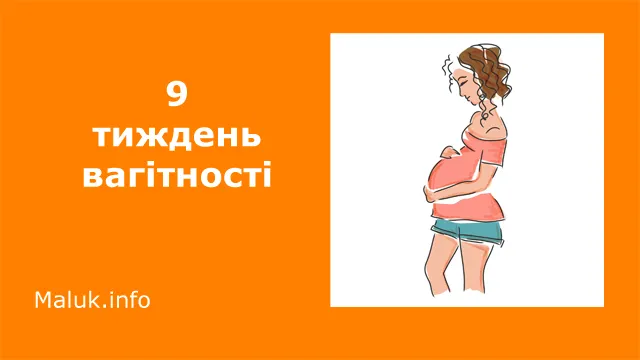Pregnancy calendar: 9th week of pregnancy
Pregnancy calendar by week. An experienced doctor tells how a child develops in the womb and what changes occur in the pregnant woman’s body. All the most important things about the 9th week of pregnancy
Changes in your body:
If you had signs of pregnancy malaise, primarily associated with a high content of the hormone progesterone in the blood , namely: drowsiness, feeling weak, reduced work capacity, excessive sensitivity to smells, picky eating, sometimes not accepting food, nausea or even vomiting – then, perhaps, in a week or two, you will feel better. Such relief is explained by that hormones, such as progesterone, will now be produced by the placenta, and therefore their concentration will be greater in the system of the uterus – the child, and accordingly less in your body as a whole. Also until the end of the first trimester (the first three months of pregnancy) gradually the corpus luteum of pregnancy, located in the ovary, will stop producing hormones, which, when acting on the whole body, could cause such unpleasant early “delights” of pregnancy. If it’s easier, then you should get relief soon.
If you have not yet been to an obstetrician-gynecologist, then I advise you to arrange your first visit to a doctor. Specialists advise you to register at the women’s consultation of your polyclinic before the 12th week of pregnancy. However, you have the right to choose a doctor and medical institution independently.
How does the baby grow?
This week, the embryonic tail disappears. The child’s body is lengthening. Upper and lower limbs, fingers increasingly resemble the hands and feet of an adult. The size of the baby at the end of the week reaches 3 cm. The baby resembles a grape in size and weight.
Brain and spinal cord structures are intensively developing. When using modern measuring devices during this period , it is already possible to record the activity of the brain – the first brain waves. Eyes, ears and other sense organs develop. The child is moving. Areas of the brain that coordinate movements are formed – the cerebellum.
As the baby’s liver, spleen, and bone marrow begin to produce blood cells, the need for a yolk sac disappears.
A child’s heart already has four chambers (like an adult’s), but they are connected by an oval opening, which will close after the birth of the child, when he will breathe through the lungs.
The genitourinary system is developing, although there are no signs of sex on the external genitalia yet.
Author: Olga Letnyanchyk, doctor
Read also:
– Pregnancy calendar: from 1 to 40 weeks

